At the turn of the nineteenth century, the world was changing and the communities in Southeast Idaho rallied behind a cause that would allow them to evolve with the times – education.
Without knowing it, they began a tradition of community, academic excellence, and inclusion that has persevered through political opposition, the Great Depression, two world wars, crippling drought, five name changes and even the Spanish flu. It’s not enough just to survive, to weather the storms, but we, as Bengals set out to flourish, to innovate, and to be the architect of a better day, tomorrow.
Academy of Idaho
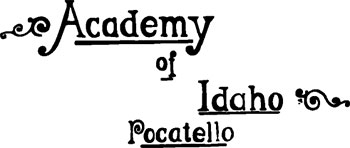
The Academy was created on March 11, 1901, when Governor Frank W. Hunt signed Senate Bill 53 into law. The Academy opened its doors on September 22, 1902.
Students: 70
Faculty: 4
Tuition: $5 per term
Theodore F. Turner

Bill 53 was drafted by Theodore F. Turner, the “father of Idaho State University”. Turner served as an Idaho State Senator and as Mayor of Pocatello. His landholdings in and around the city were numerous. He donated Red Hill and a 160-acre farm to the Academy.
Swanson Hall
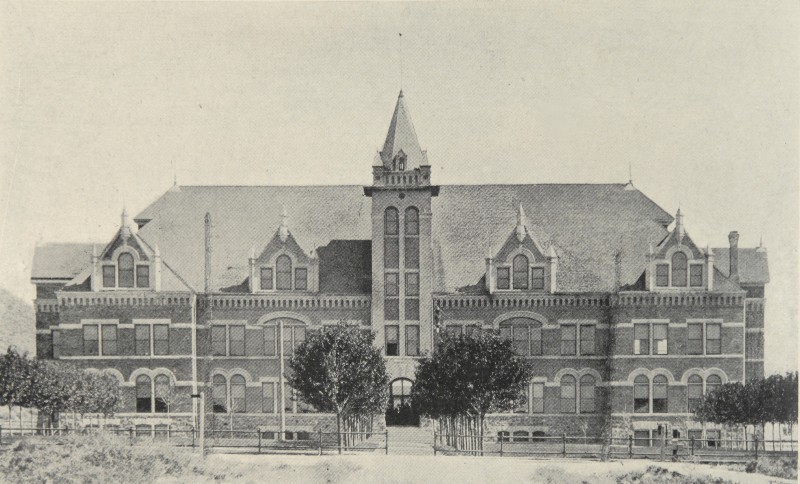
Swanson Hall was the first building built for the Academy of Idaho. It was named after
Theodore Swanson, one of the members of the Board of Trustees for the Academy. It was
demolished in 1973 due to safety concerns.
The original arch was saved and is now part
of
the March Through The Arch Tradition.
The Bantams
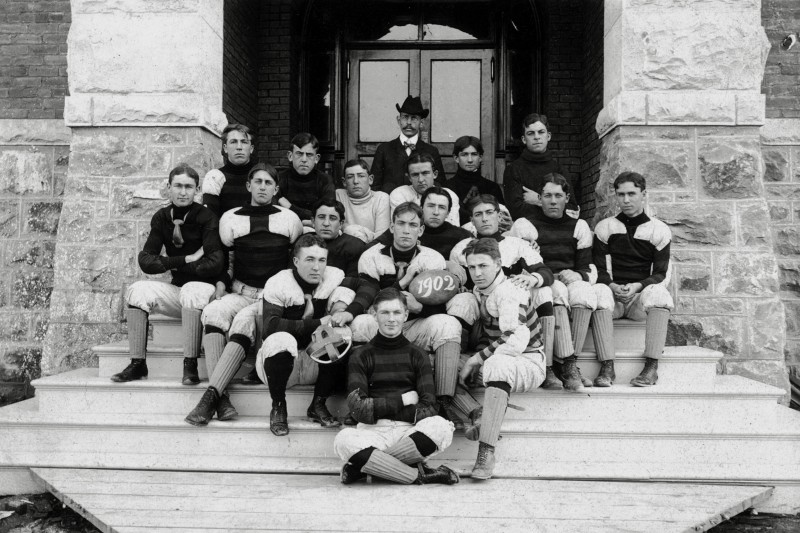
Blossoming school spirit and loyalty required the selection of a team name. In 1906, an unknown person decided on the Bantams. A bantam is a breed of chicken characterized by its tiny size.
Apparently not thrilled with the Bantam name, the Academy’s baseball team decided to call themselves the “Tigers” in 1908.
Alumni Association established
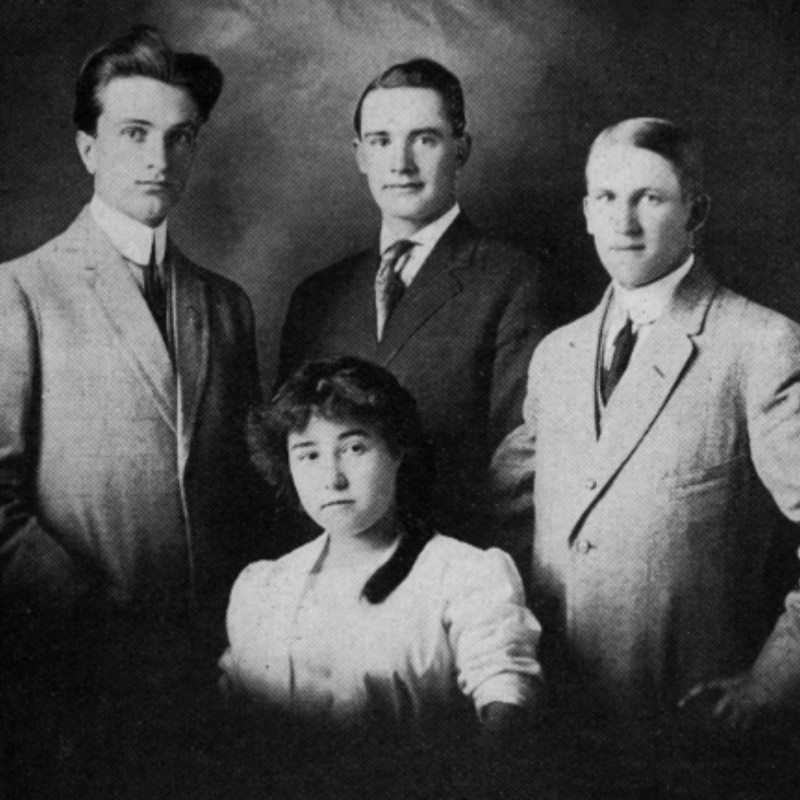
Established in 1906 when the Academy of Idaho boasted only 14 graduates, the Alumni Association now has over 85k members.
Idaho Technical Institute

The Academy of Idaho was renamed the Idaho Technical Institute, referred to by many as "the Tech."
The two-year vocational collegiate institute was divided into two schools, the Technical School and the College Preparatory School, or junior college.
Student Army Training Corps
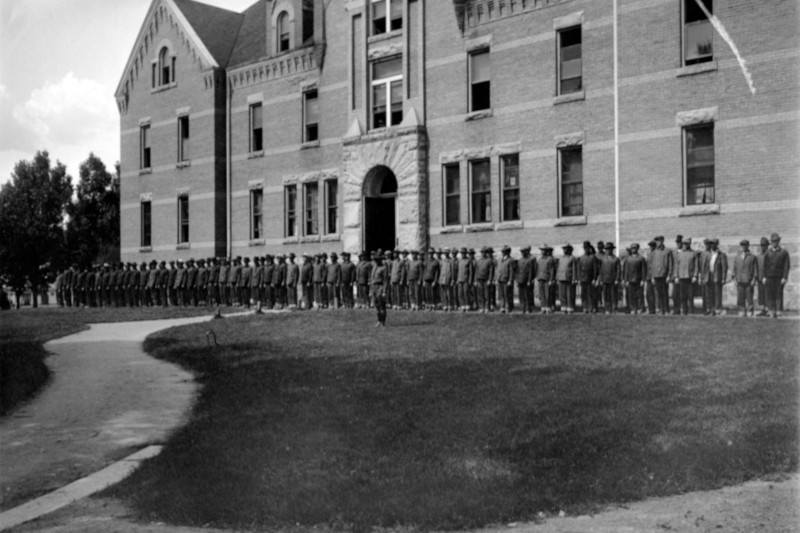
When the United States entered World War I, enrollment dropped by nearly 50 percent in just a few
months. The Tech was saved by a contract with the federal government establishing a Student Army
Training Corps.
Four Tech students were killed in the war. The sundial in front of Frazier
Hall
is a memorial to those who served in the war.
Campus Closure
"The year has been fateful but prophetic" -1918 Wickiup*
In October, the academy closed for nearly two months due to the Spanish Flu Epidemic. During this time, Principal Miles Reed suffered a fatal heart attack. Shortly after reopening, the academy was affected by an economic downturn which caused banks to close and farms to be repossessed. All non-essential functions and activities were cancelled for the rest of the school year.
*The Wickiup was an annual yearbook published from 1907 to 1981. Wickiup archive
A wickiup is a hut consisting of an oval frame covered
with brushwood or grass.
The Quad
The Quad was dedicated to Ralph F. Hutchinson, a former football coach and athletic director in the 1920s. After his death in 1935, his ashes were scattered over the field. In honor of their beloved mentor and friend, ISU vowed to never build on the Quad, which is why all the buildings circle it.
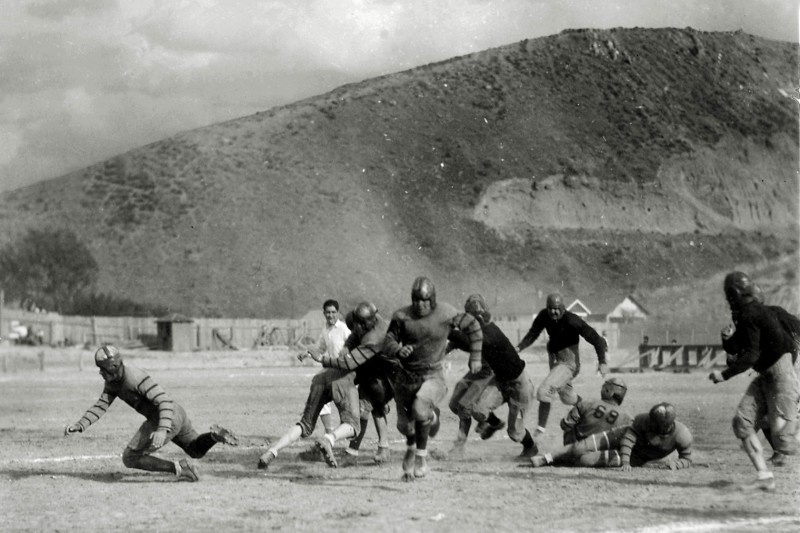
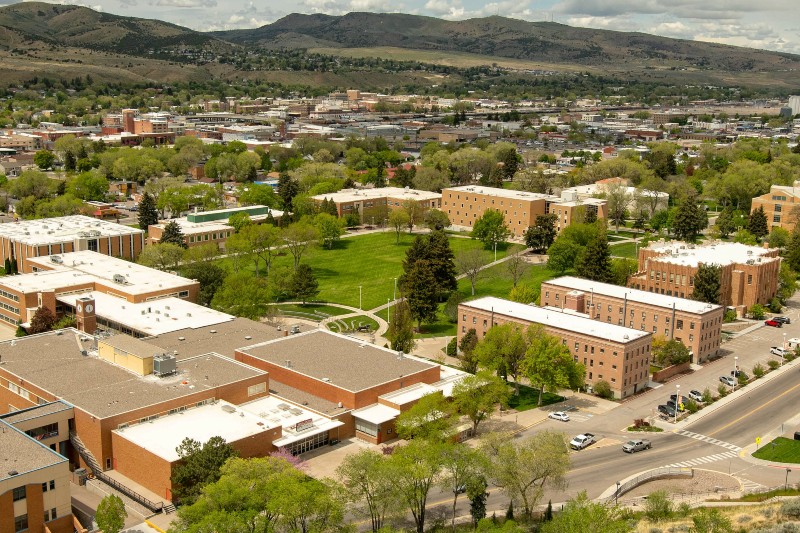
University of Idaho-Southern Branch
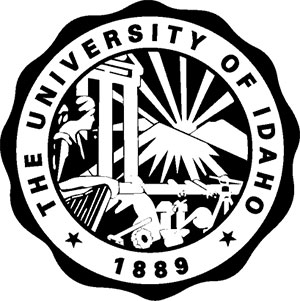
Under the 1927 House Bill 160 compromise, the Tech became University of Idaho-Southern Branch. Within the branch there were four divisions: Letters and Science, Engineering, Vocational Completion, and Pharmacy.
Orange, Black, and Bengal
Coach Ralph Hutchinson, a Princeton alumnus, established Princeton's orange and black and the Bengal Tiger as the branch's official colors and mascot.
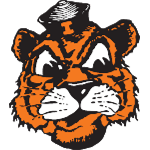


Red Hill I
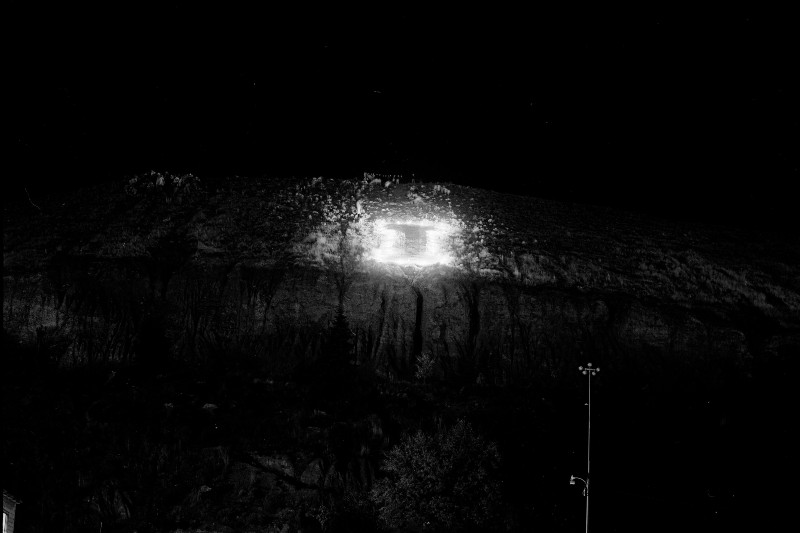
The first letter to appear on Red Hill was a 'T' for Tech. It later became a '4' to express the desire for a four-year school. The 'I' was built in 1927. It was rebuilt in 2019.
1927 - College of Pharmacy
The Spud Bowl
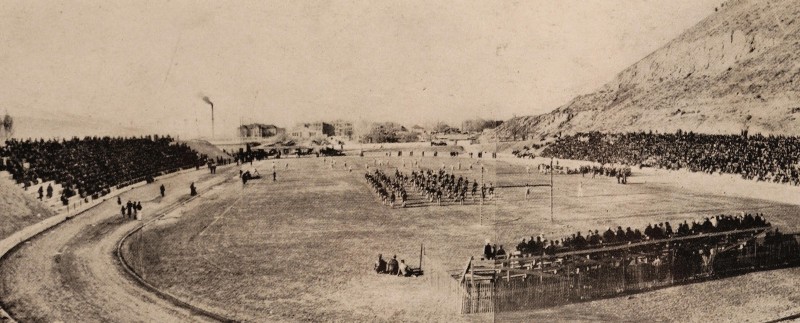
The Spud Bowl was the first football arena on campus. Construction began in 1933. It was completed with help from the Works Progress Administration.
On November 11, 1936, the first football game was played against Montana State with over 6,000 in attendance.
The Spud Bowl was later named Davis Field.
Student Union
The current Administration Building was built in 1939 and served as the Student Union Building until 1959, when the current Student Union was built. The building was Pocatello's hot spot for dances.
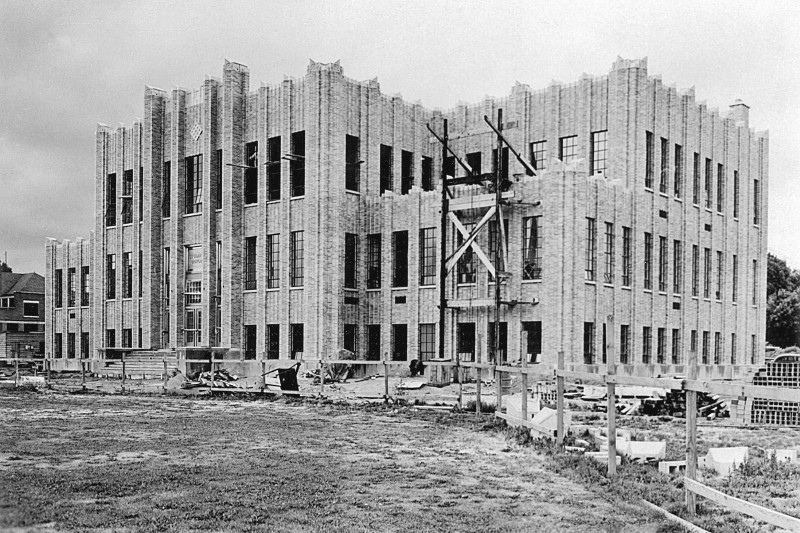
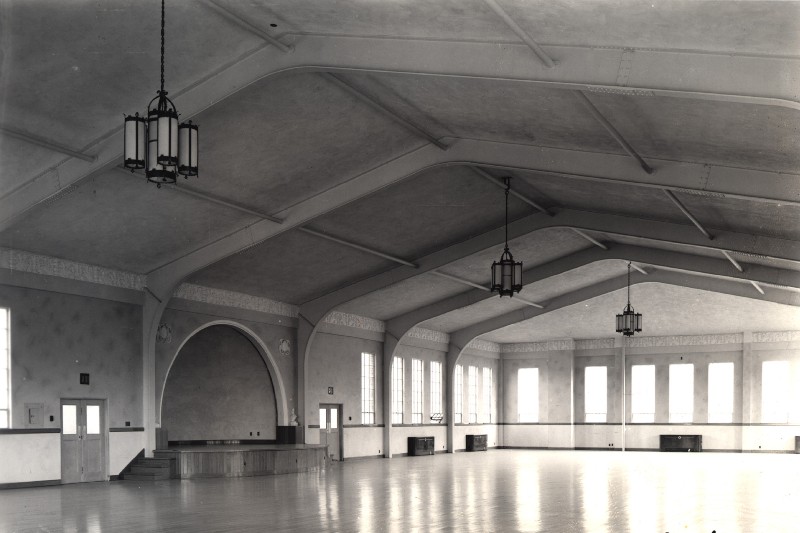
V-12 Program
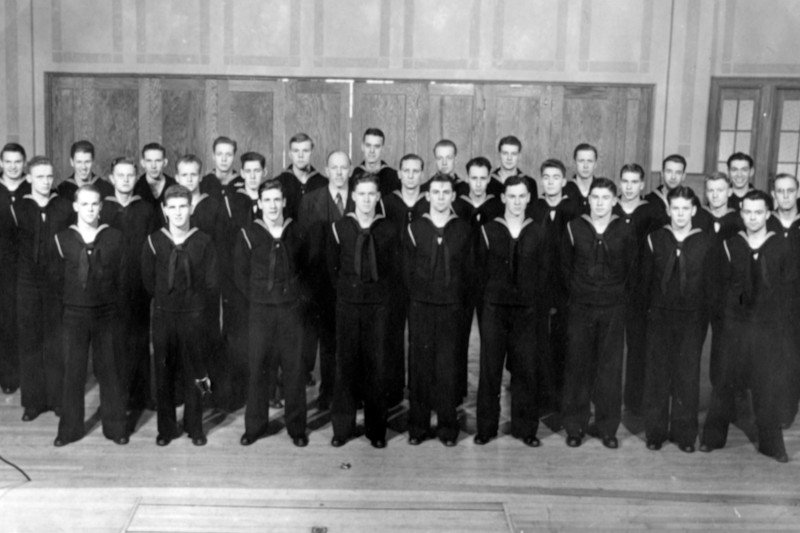
After the attack on Pearl Harbor in December 1941, many students and some faculty members had a desire to enlist in the military. The branch began the V-1 program. The two-year naval training course qualified cadets for further military training.
In 1943, a one-year officer training school called V-12 attracted 450 cadets to campus.
During the course of the war, 2,200 men and 96 women from the Branch served in the Armed Forces. Of those who served, there were 61 casualties.
Idaho State College
On March 3, 1947, Governor Robins signed a bill to create a four-year degree granting institution called Idaho State College.
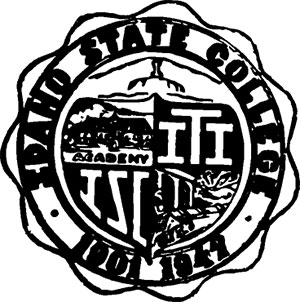
Students, faculty, and community members had been lobbying for a four-year school since 1915. This was a huge victory.
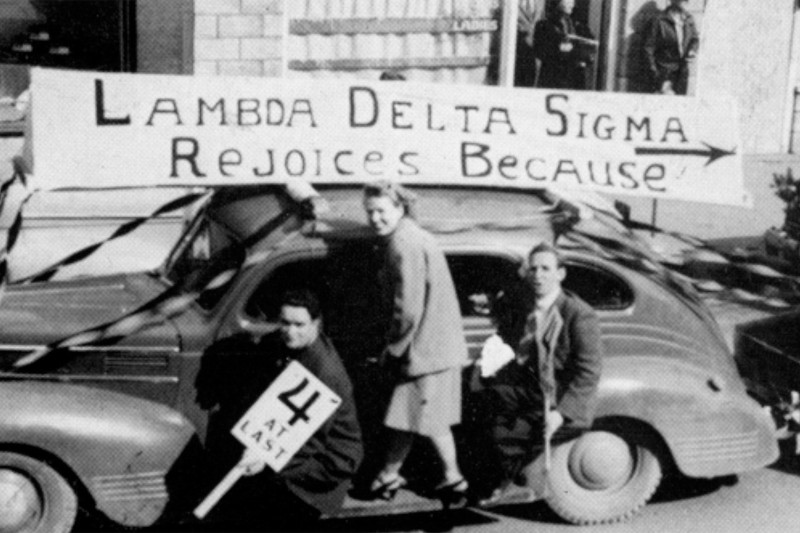
1947 - College of Arts & Sciences
Later renamed
Fight Song
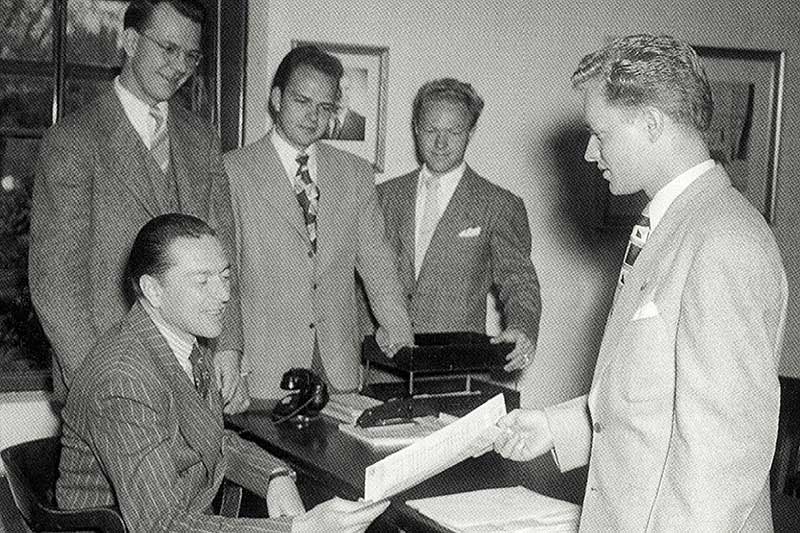
"Growl, Bengals, Growl"
Growl, Bengals, Growl
Fight, Bengals,
Fight
Gnash your teeth and bare your claws
And drive with all your might
Roar,
Bengals,
Roar
You decide our fate
Bring the vict'ry home to us,
You Bengals of Idaho
State
Alma Mater Hymn
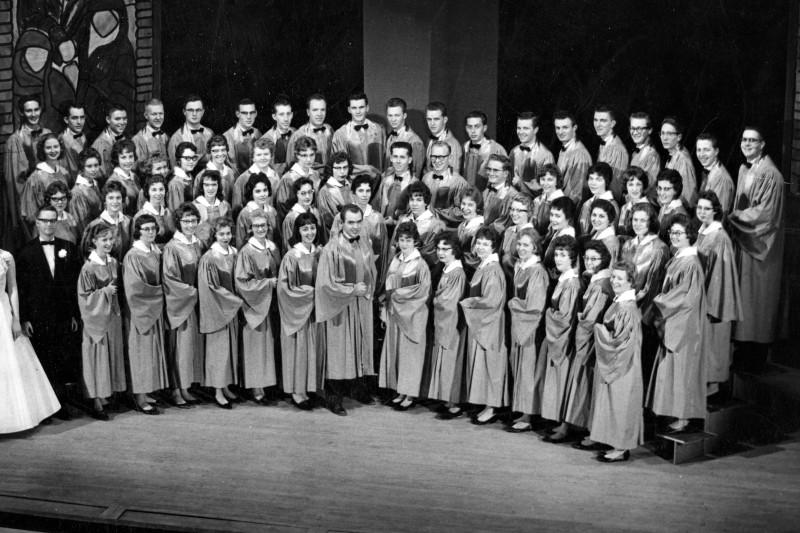
The Alma Mater Hymn was composed by Wesley M. Harris, band director.
Hail to thee Our Alma Mater,
glorious is thy name.
Evermore thy sons and daughters carry on thy fame.
May thy students ere be loyal to thy memory true.
Hail to thee, our Alma Mater.
Hail to ISU!
Reed Gym
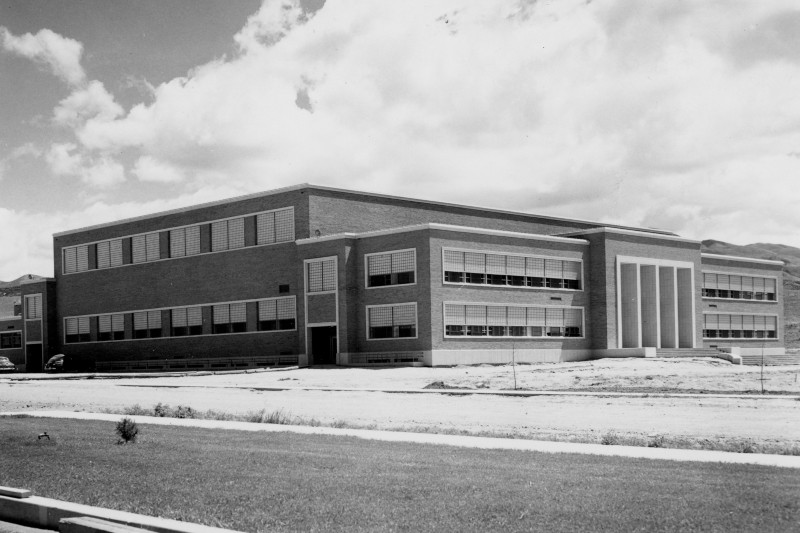
Named after Miles F. Reed, who was the Academy Principal from 1907-1918, Reed Hall was built in 1919. In 1951, Reed Gymnasium was built.
When Reed Gym was proposed, the city of Pocatello and the students were upset that the gym was going to be built out of town with no road leading up to it. Now the campus and city surround the gym.
First Female Student Body President
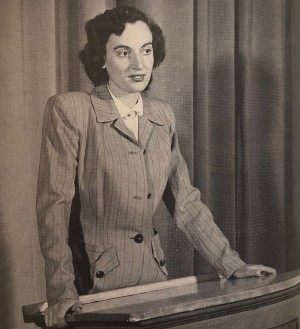
Dorothy Wagoner became the first female student body president at Idaho State and, at that time, the only female student body president in the country.
National Champions
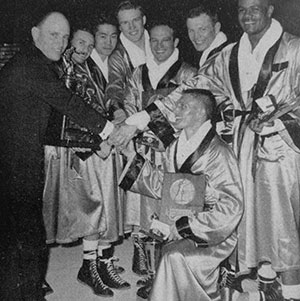
In 1952 and 1957, Idaho State College’s boxing team won national championships in intercollegiate sports.
First Mascot
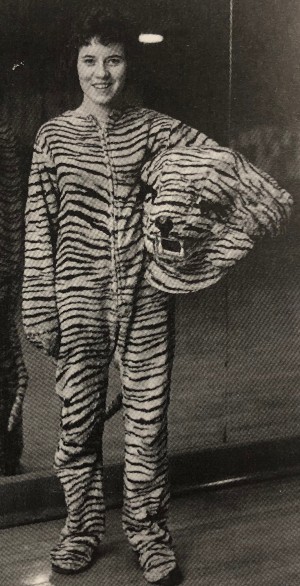
“Benjie,” the school’s first official mascot, was donated by the Sigma Kappa social sorority in 1956 to encourage school spirit. For several years, members of the sorority wore the uniform.
1956 - College of Nursing
1958 - College of Education
New Student Union
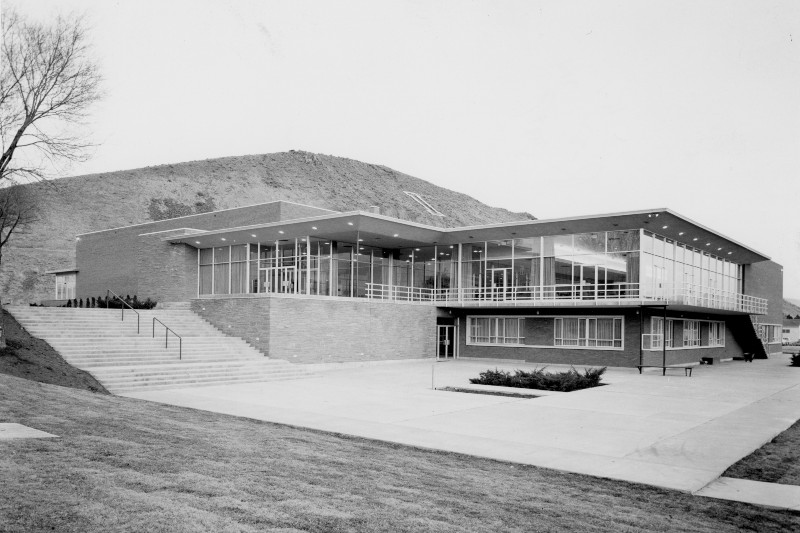
The current Student Union Building opened its doors in 1959. In 1985, the SUB was renamed the Earl R. Pond Student Union Building after the real "Mr. ISU" himself, Earl Pond, who served as the SUB General Manager for over twenty-three years.
1961 - College of Business
Idaho State University
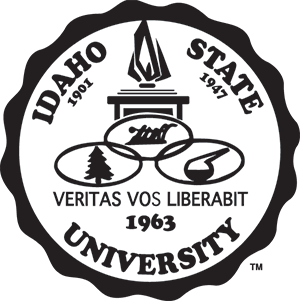
On July 1, 1963, Idaho State College was renamed for a fifth and final time to Idaho State University. School was dismissed for a day of signing, and members of the student government and administrative staff traveled to Boise to witness Governor Smylie sign the bill.
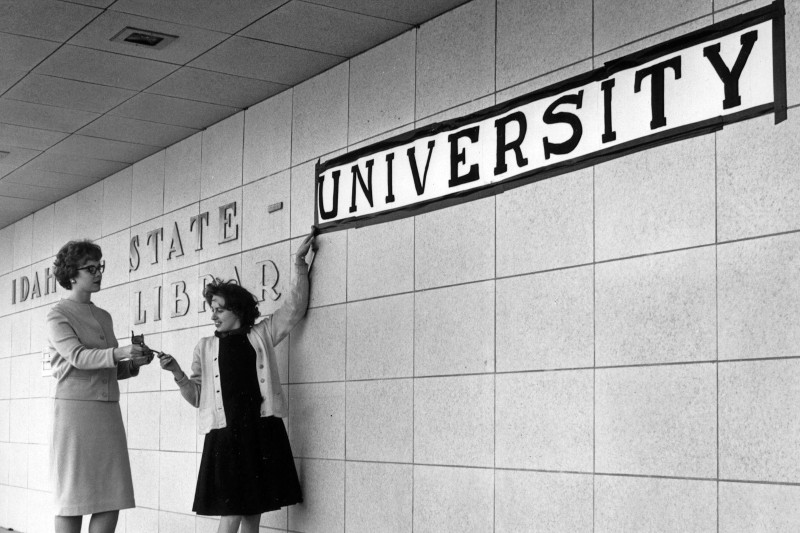
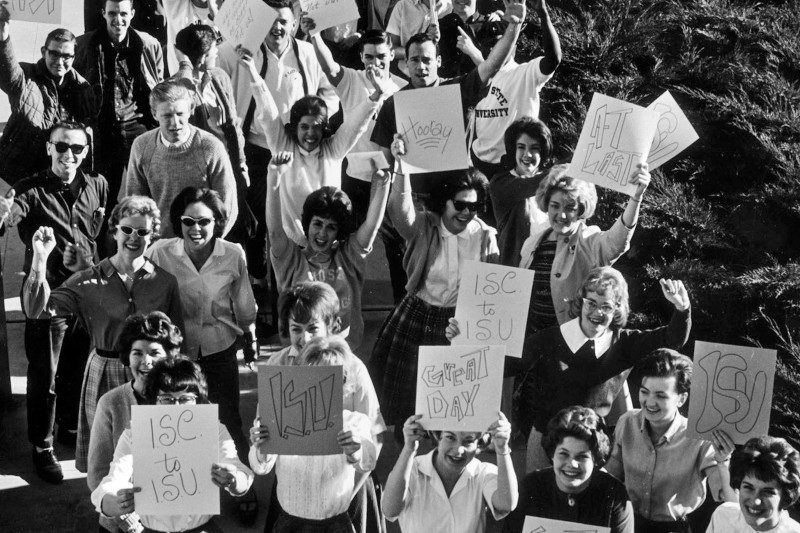
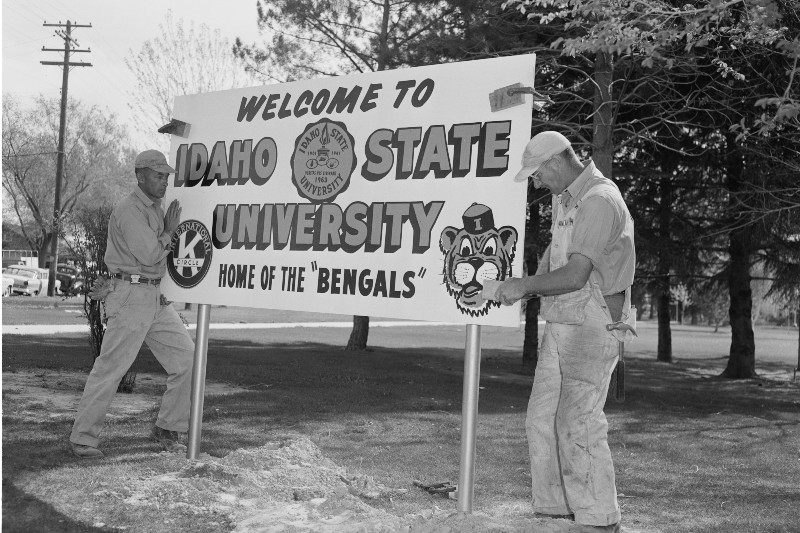
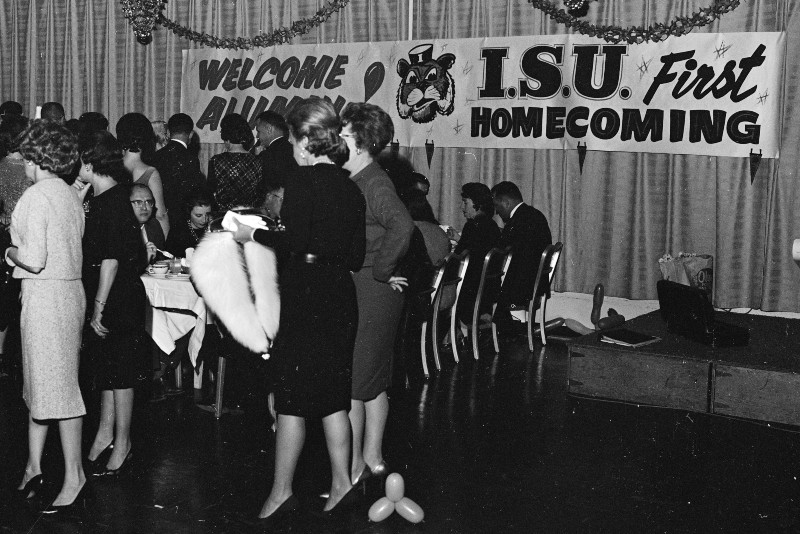
1968 - College of Health Professions
The Minidome
In a historic decision, ISU students voted in favor of a $12 tuition increase to fund the project, and the ASISU Minidome became a reality. The stadium was to be modeled after the Houston Astrodome and was the first enclosed stadium on a college campus in the United States. In 1988, it was renamed the ASISU Holt Arena in honor of Dubby Holt and his contributions to athletics at ISU.
In the 1970s and 80s, the Minidome hosted several famous bands and musicians, such as Van Halen, Journey, ZZ Top, Rush, REO Speedwagon, Willie Nelson, and Johnny Cash, just to name a few.
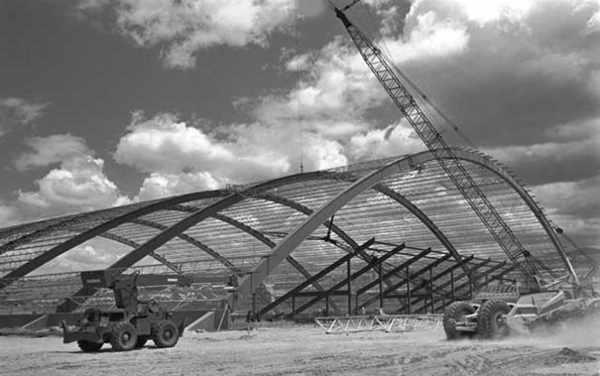
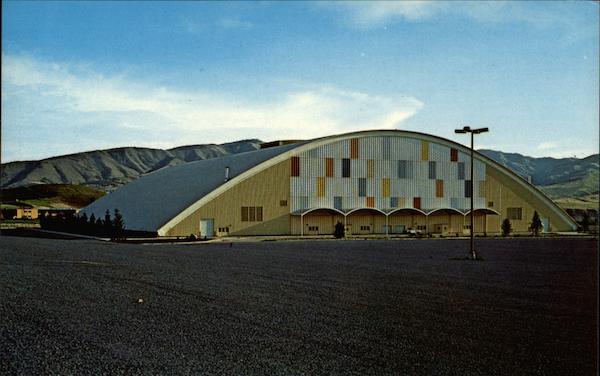
Red Hill Pillars
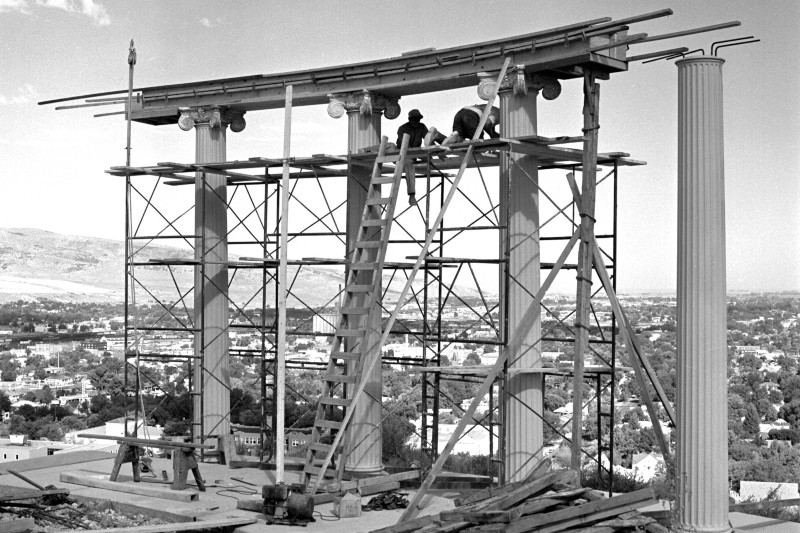
The McHan Henderson Funeral Home donated the pillars to the University. The Dedication of the Alumni Point pillars took place on October 17, 1970. Hiking Red Hill to the pillars quickly became a favorite pastime for students.
“The three pillars connected under the lintel represent the individuals within the group or the students, while the single pillar represents the alumnus who has left the student group and is standing alone.”
— Bill Ryan, Idaho State’s First Alumni Director
Oboler Library
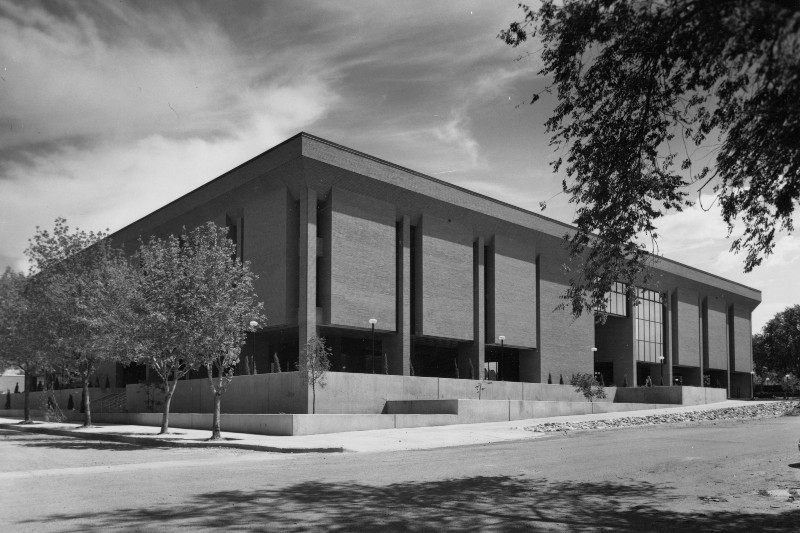
ISU's library was originally located in Swanson Hall. It was moved to Frazier Hall until a library building (currently the Museum building) was completed in 1954. As with previous locations, the space became inadequate for the size of the university's collections.
The Oboler Library was completed in 1977. With 175,135 square feet of floor space, the new library easily accommodated the 1.6 million items that were moved into it.
The building is named after Eli M. Oboler, director of the library from 1949-1980.
1986 - College of Science and Engineering
www.isu.edu
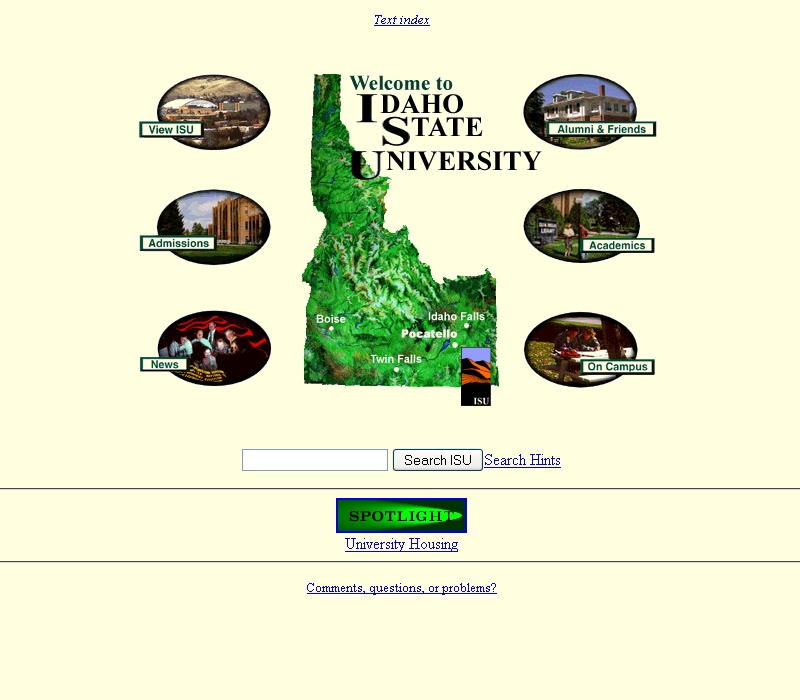
ISU appeared on the world wide web in the late 90s. The first homepage illustrates how much has changed since then.
Centennial
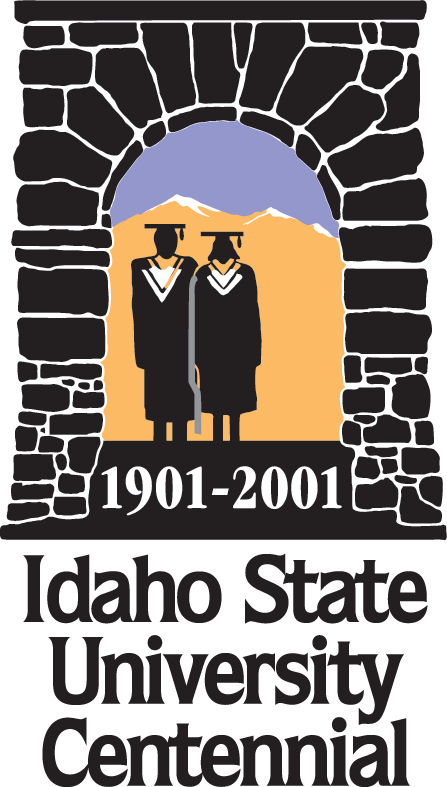
Idaho State celebrated its Centennial history with a fundraising campaign, raising more than $150 million.
2001 - College of Technology
Stephens Performing Arts Center
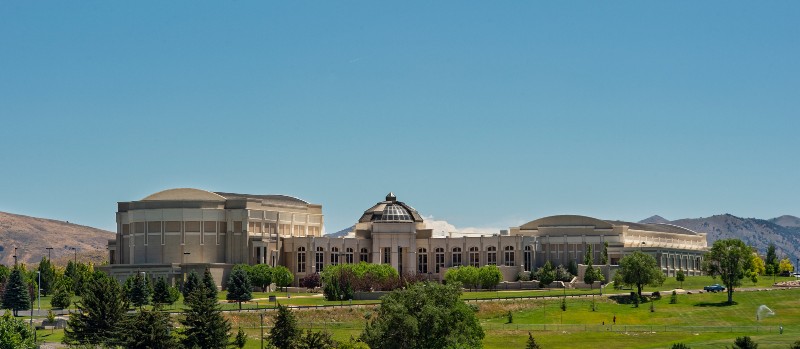
In October 2004, the L.E. and Thelma Stephens Performing Arts Center opened with a performance of "Man of La Mancha." The state-of-the-art complex attracts performers and students from around the world.
Student Recreation Center
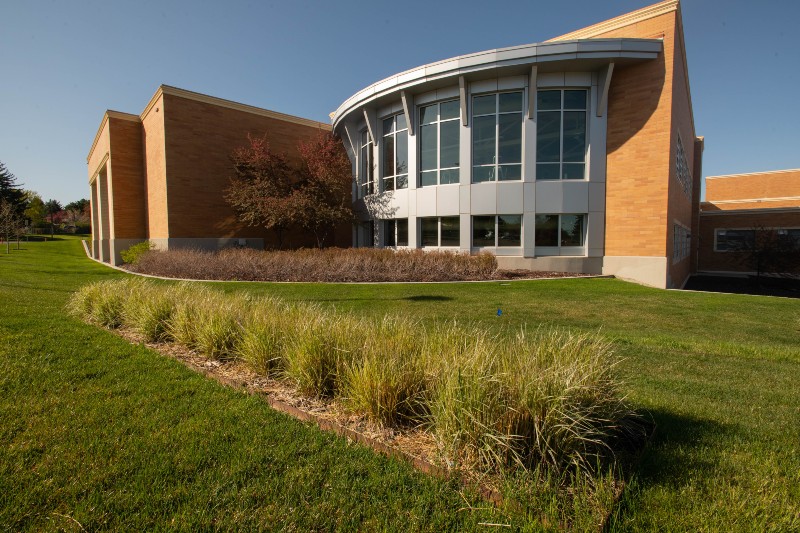
The Student Recreation Center opened in August 2010 with nearly 100,000 square feet of recreational opportunities, including weight training, endurance exercise, tennis, racquetball, auxiliary gym, track, climbing wall, swimming pool and spinning/multi-purpose rooms.
2010 - College of Arts and Letters
Previously Arts & Sciences
Bengal Statue
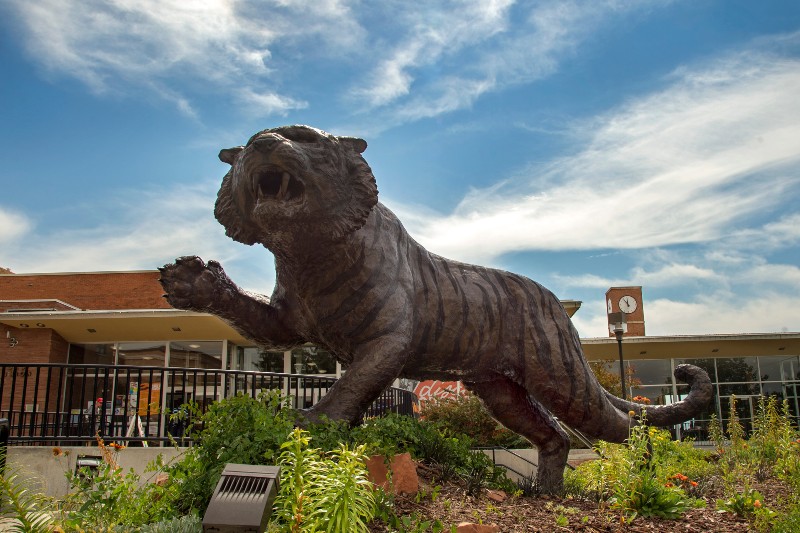
In 1953, a paper mache tiger was made for a Phi Sigma Kappa homecoming float. The tiger was so
liked that it was preserved and added as a permanent fixture outside of Reed’s Gym on campus for
many years. It was taken down in 2013.
In October 2012, the bronze bengal outside the SUB was revealed and a new tradition started
where students give the statue a high-five for good luck.
2018 - College of Rehabilitation & Communication Sciences
ICCU Bengal Alumni Center
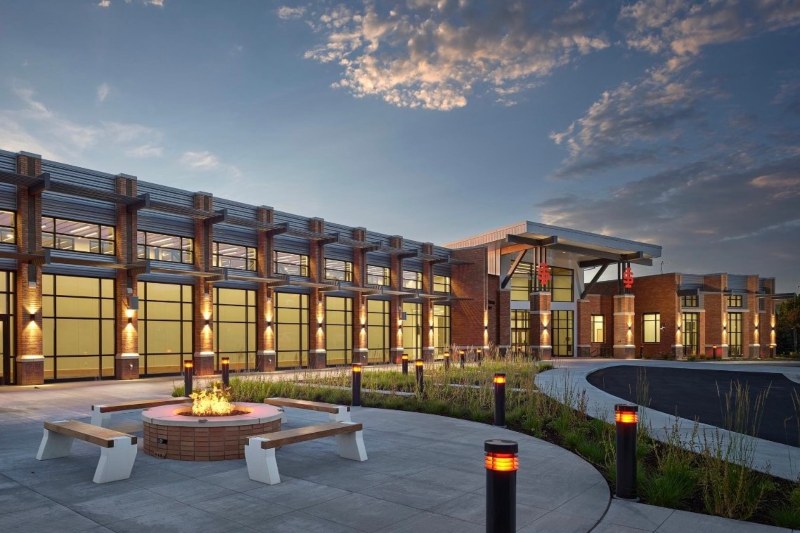
With nearly three decades of planning, the ICCU Bengal Alumni Center was dedicated on August 25, 2023. The state-of-the-art facility nestled at the heart of Idaho State University’s vibrant campus offers a modern executive boardroom and a selection of versatile event spaces, providing the perfect setting for your next event, celebration or gathering.
Sources
Idaho State University: A Centennial Chronicle by Diane Olson (2000)
History of Idaho State College by Merrill D. Beal (1952)
Idaho State Wikiup Annuals (1943 — 1971)
Idaho State University Campus History Series, by ISU Management Honors Class (2017)
